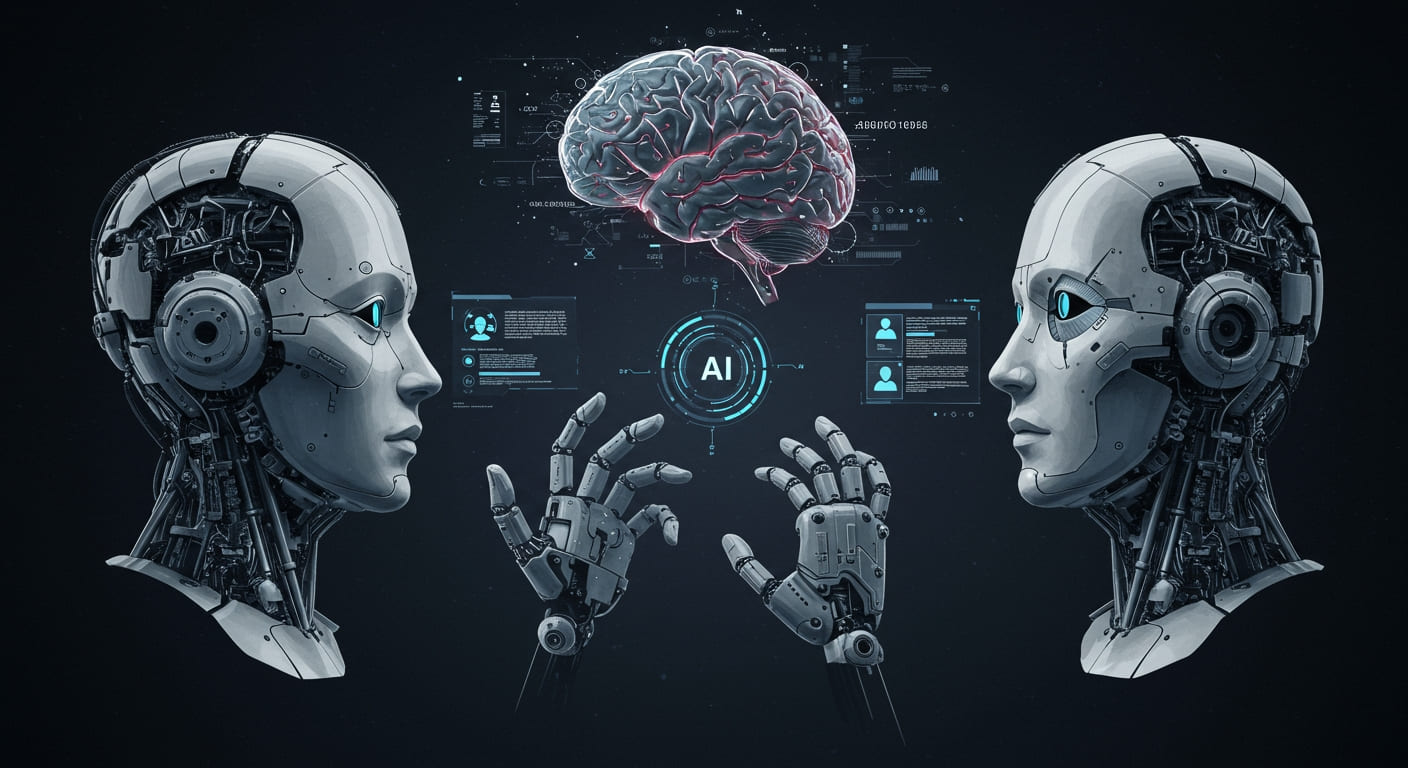Struggling with one-size-fits-all learning? You’re not alone. Most LMS platforms leave learners with generic courses that don’t match their pace or style. That’s where AI in LMS steps up—transforming rigid content delivery into a tailored journey that boosts engagement and success. In this post, I’ll show you how AI-powered adaptive content and intelligent learning recommendation engines can personalize learning paths, making education smarter and more effective.
How Learning Recommendation Engines Transform LMS Personalization
At the heart of effective personalization in learning management systems are AI-powered learning recommendation engines. These systems analyze a wide variety of learner data to deliver highly relevant course suggestions, tailoring the educational experience to individual needs.
Data Inputs Used
Recommendation engines rely heavily on dynamic data inputs such as:
- Performance metrics: quiz scores, assignment grades, time-on-task
- Learning preferences: preferred content formats, learning styles (visual, auditory, kinesthetic)
- Behavioral data: navigation patterns, content completion rates, frequency of logins
Harnessing these inputs enables AI to create a nuanced learner profile, which forms the basis of precise course recommendations.
Algorithms Behind Recommendations
Modern AI in LMS platforms utilize advanced machine learning algorithms like collaborative filtering and content-based filtering, augmented by deep learning, to sift through vast amounts of data. These algorithms identify patterns and correlations, such as learners with similar profiles benefiting from specific courses or topics.
Emerging AI techniques like reinforcement learning further refine recommendations by continuously adapting suggestions based on learner feedback and performance trends.
Examples of Outcomes
In real-world implementations, learning recommendation engines have demonstrated:
- Increased course completion rates by up to 35%, as learners engage with content better suited to their needs
- Higher learner satisfaction scores due to relevant and timely course suggestions
- Improved learning efficiency, by focusing efforts on critical skills gaps identified by AI
For example, corporate LMS platforms using learning recommendation engines guide employees through skill development paths tailor-made for their job roles, driving measurable results in performance metrics.
Leveraging Adaptive Content for Dynamic Learning Experiences
While recommendation engines guide learners to the ideal courses, adaptive content personalizes the experience within each course, changing in real time according to the learner’s journey.
Defining Adaptive Content in LMS Context
Adaptive content refers to digital learning materials that modify themselves dynamically based on learner inputs, progress, and behavior. Unlike static content, adaptive content shifts pacing, difficulty, or style to meet learners’ evolving needs.
Types of Adaptive Adjustments
- Difficulty level: Quiz questions, exercises, and simulations adjust complexity based on learner accuracy and confidence. For instance, a learner struggling with foundational concepts receives more foundational practice before advancing.
- Format variations: If a learner prefers videos over text, AI can prioritize multimedia content. Similarly, interactive simulations or gamified elements can be introduced when engagement dips.
- Pacing adjustments: The system slows down or speeds up content delivery based on learner progress, ensuring no one feels rushed or bored.
Benefits for Learner Engagement and Retention
Adaptive content transforms passive consumption into active, tailored engagement. Key benefits include:
- Increased motivation: Learners remain challenged without frustration, maintaining curiosity to explore further.
- Deeper comprehension: By focusing on weak areas, learners build a stronger foundation before moving ahead.
- Better retention: Personalization promotes information retention by aligning content with cognitive readiness and preferred learning modes.
In industries like healthcare and aviation, where mastery of complex material is non-negotiable, adaptive content in LMS platforms directly correlates with reduced error rates and enhanced job performance.
Integrating AI in LMS: Technical and Practical Considerations
Introducing AI into your LMS isn’t plug-and-play—it requires thoughtful planning, investment, and ongoing management.
Required Technology and Infrastructure
To effectively integrate AI features like learning recommendation engines and adaptive content, your LMS requires:
- Robust data collection systems: Extensive logging of learner interactions, performance, and preferences
- AI and ML processing capabilities: Cloud-based or on-premise servers capable of running advanced algorithms in near real-time
- API integrations: To connect with external content libraries, HR systems, and analytics tools for richer data context
Modern platforms often leverage AI-as-a-service providers, making implementation more accessible without building AI models from scratch.
Data Privacy and Security Concerns
With increased data collection comes responsibility. Organizations must:
- Adhere to regulations like GDPR, CCPA, and industry-specific standards (e.g., HIPAA for healthcare)
- Implement encryption, anonymization, and secure access controls to protect sensitive learner data
- Maintain transparency with learners regarding data usage and AI decision-making processes
Trust in data handling is essential to learner adoption and ongoing engagement.
ROI and Measuring AI Effectiveness
Assessing AI’s impact involves tracking:
- Learner engagement metrics (e.g., login frequency, time spent)
- Course completion and pass rates
- Skill acquisition and job performance indicators
Business outcomes like reduced training time, lower costs, and improved employee retention further validate ROI. Establish clear KPIs before deployment and leverage AI-powered analytics dashboards for real-time insights.
Future Trends in AI-Powered Learning Personalization
The evolution of AI in LMS continues, unlocking even more sophisticated personalization strategies.
Predictive Analytics to Anticipate Learner Needs
Beyond reactive recommendations, predictive analytics forecasts learning challenges before they arise. For example, AI can signal if a learner is likely to struggle based on early indicators and proactively adjust pathways or alert instructors.
Natural Language Processing for Personalized Feedback
With advances in Natural Language Processing (NLP), AI systems now analyze learner responses, essays, or forum posts to provide nuanced, personalized feedback. This enhances self-reflection and helps learners improve in ways generic automated grading cannot.
Gamification Enhanced by AI Insights
AI increasingly enhances gamified elements by customizing challenges, rewards, and storylines to individual motivations and progress, making learning both fun and effective.
These emerging innovations make AI in LMS a continually evolving force, offering deeper personalization pipelines and richer learner experiences.
Conclusion
Personalizing learning paths using AI in LMS isn’t just a nice-to-have—it’s the future of education. By leveraging intelligent learning recommendation engines and adaptive content, organizations can create deeply engaging, efficient, and learner-centered experiences. WildnetEdge stands at the forefront of this evolution, offering tailored AI solutions that transform LMS platforms into smart, adaptable ecosystems. Ready to take your LMS to the next level? Partner with WildnetEdge to unlock the true potential of AI-driven learning personalization.
FAQs
Q1: How does AI in LMS improve learning recommendation engines?
AI analyzes learner behavior and performance data to deliver tailored course suggestions, improving engagement and course completion rates.
Q2: What is adaptive content in the context of AI-powered LMS?
Adaptive content dynamically changes based on a learner’s progress and needs, ensuring personalized pacing, difficulty, and learning formats.
Q3: What are key challenges when integrating AI in LMS systems?
Challenges include technology infrastructure needs, data privacy concerns, and accurately measuring AI’s impact on learning outcomes.
Q4: Can AI in LMS personalize learning for different industries or subjects?
Yes, AI algorithms can customize learning paths based on industry-specific skills and learner roles for maximum relevance.
Q5: How can WildnetEdge help organizations implement AI-powered LMS solutions?
WildnetEdge offers expert guidance and solutions to integrate cutting-edge AI features that personalize and optimize learning paths effectively.

Managing Director (MD) Nitin Agarwal is a veteran in custom software development. He is fascinated by how software can turn ideas into real-world solutions. With extensive experience designing scalable and efficient systems, he focuses on creating software that delivers tangible results. Nitin enjoys exploring emerging technologies, taking on challenging projects, and mentoring teams to bring ideas to life. He believes that good software is not just about code; it’s about understanding problems and creating value for users. For him, great software combines thoughtful design, clever engineering, and a clear understanding of the problems it’s meant to solve.
 sales@wildnetedge.com
sales@wildnetedge.com +1 (212) 901 8616
+1 (212) 901 8616 +1 (437) 225-7733
+1 (437) 225-7733















 ChatGPT Development & Enablement
ChatGPT Development & Enablement Hire AI & ChatGPT Experts
Hire AI & ChatGPT Experts ChatGPT Apps by Industry
ChatGPT Apps by Industry ChatGPT Blog
ChatGPT Blog ChatGPT Case study
ChatGPT Case study AI Development Services
AI Development Services Industry AI Solutions
Industry AI Solutions AI Consulting & Research
AI Consulting & Research Automation & Intelligence
Automation & Intelligence













